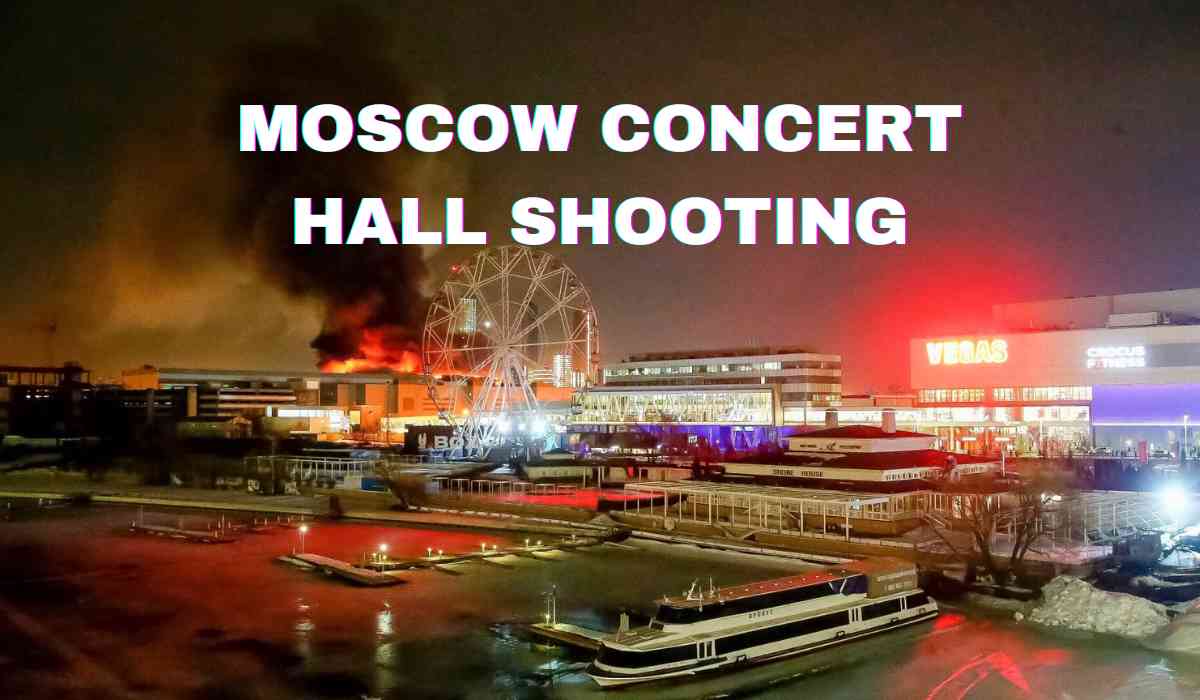During a rock concert at a popular Moscow venue, chaos erupted as masked gunmen armed with automatic rifles opened fire on the crowd. The tragic incident has resulted in at least 115 confirmed deaths, with many more in critical condition, as reported by Russia's Investigative Committee and Health Ministry. Video footage captured the horrifying scene of the assailants shooting unarmed individuals before moving into the auditorium's foyer. Russian special forces intervened as casualties were being evacuated from the building.
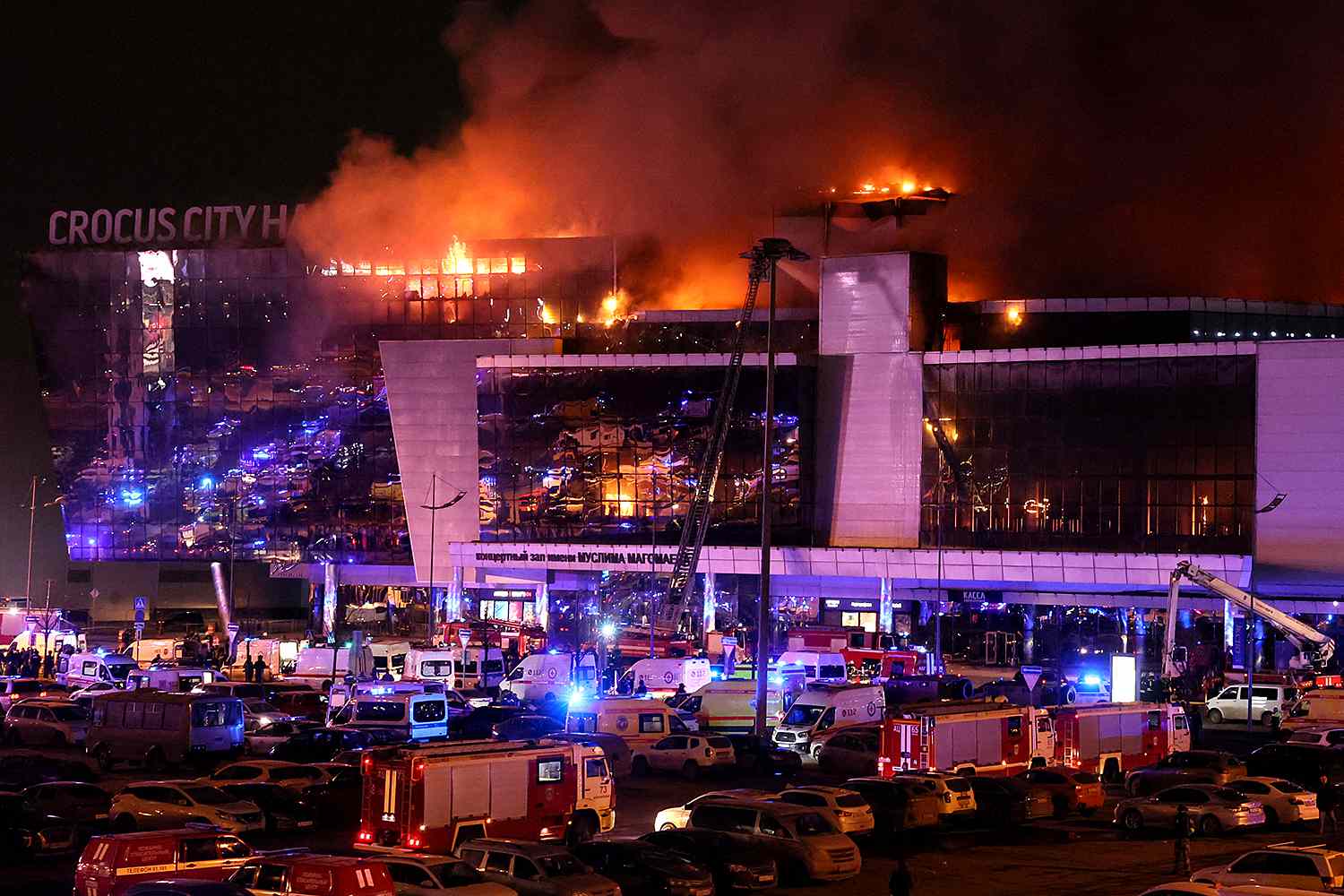
-
Approximately five gunmen clad in camouflage attire stormed the packed concert hall, where the veteran rock band Picnic was scheduled to perform, indiscriminately firing into the crowd and detonating explosives. The Russian National Guard initiated a search for the perpetrators, with their fate remaining uncertain.
-
A fire erupted within the concert hall, rapidly spreading and engulfing the premises in smoke, prompting panicked attendees to flee towards emergency exits.
-
Witnesses recounted scenes of chaos as concertgoers desperately attempted to evacuate, with some describing a harrowing crush as individuals climbed over one another to escape.
-
The Islamic State (ISIS) claimed responsibility for the attack via its Telegram channel, asserting that its operatives targeted a large gathering on the outskirts of Moscow before evading capture.
-
Both Ukrainian officials and a pro-Ukrainian militia, the Freedom of Russia Legion, denied any involvement in the attack, with Ukraine's presidency asserting no connection to the incident.
-
President Putin remained briefed on developments, with the government initiating a comprehensive investigation into the terrorist act.
-
The assault occurred at the 6,200-seat Crocus City Hall in Krasnogorsk near Moscow, moments before a sold-out concert by the Russian rock group Piknik was set to commence.
-
Reports from journalists at the scene noted the deployment of grenades or incendiary devices by the attackers, further exacerbating the situation and contributing to the spread of the fire.
-
The emergency response included efforts to contain the blaze, with helicopters engaged in firefighting operations. Rescue operations were also conducted to evacuate individuals trapped within the building.
-
The emergency ministry facilitated the evacuation of approximately 100 people through the concert hall's basement. Meanwhile, all members of the Piknik group were safely evacuated, with additional rescue operations conducted for individuals stranded on the roof.
-
Before the attack, Western countries, led by the United States, had issued warnings regarding potential terrorist threats in Russia, advising citizens to avoid large gatherings.
-
While Russia refrained from attributing blame immediately, former President Dmitry Medvedev warned of consequences for Ukrainian leaders implicated in the attack.
-
International reactions included condemnation from the US presidency, which emphasized no immediate link to the Ukraine conflict. Ukrainian officials denounced any involvement, labeling the incident as a Russian provocation.
-
In response to the attack, Russia bolstered security measures across airports, transportation hubs, and the capital city, with all large-scale public events canceled nationwide.
-
The International Criminal Police Organization (Interpol) expressed readiness to support Russia's investigation into the attack, condemning the violence against innocent civilians.
-
After the attack, the Kremlin announced the arrest of 11 individuals, including four suspected gunmen, with ongoing efforts to identify additional accomplices.
-
The Federal Security Service (FSB) confirmed the detention of "four terrorists," with investigations underway to uncover further details.
-
Russian lawmaker Alexander Khinshtein disclosed that the attackers fled in a Renault vehicle, later sighted by authorities in the Bryansk region, approximately 340 kilometers southwest of Moscow, where they evaded capture despite police instructions to stop.
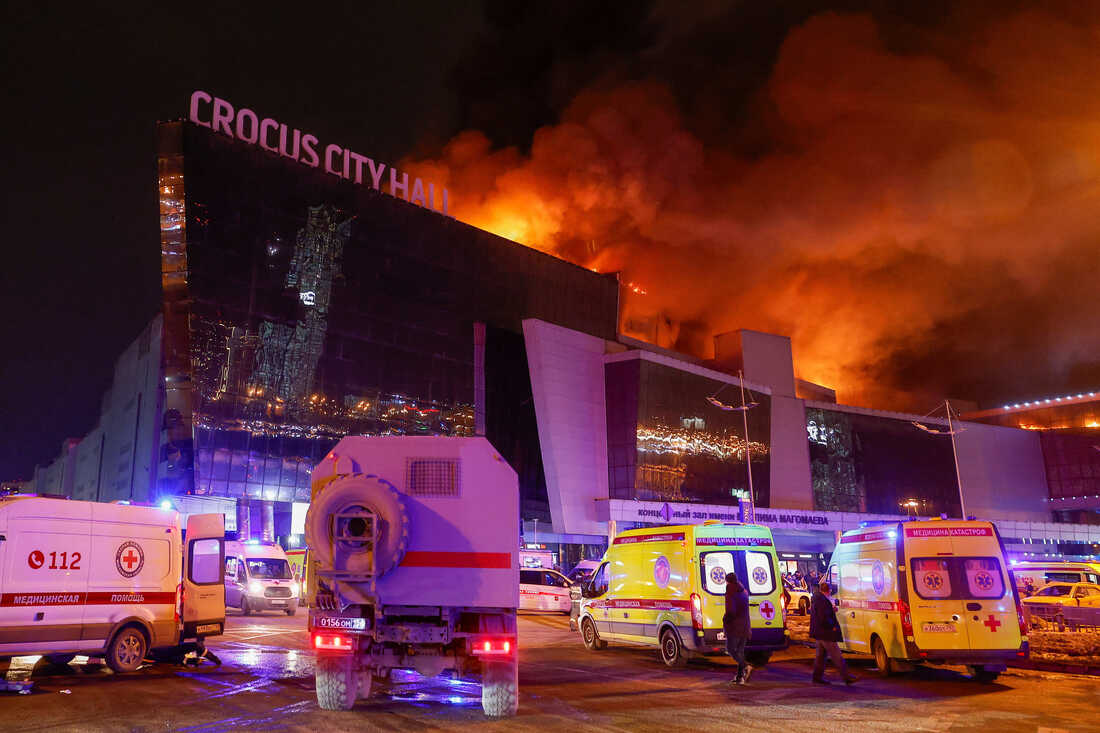
Islamic State Khorasan (ISIS-K), named after the historical term for a region encompassing parts of Iran, Turkmenistan, and Afghanistan, emerged in eastern Afghanistan towards the end of 2014, swiftly earning notoriety for its extreme acts of violence. As a regional affiliate of the Islamic State militant group, ISIS-K has experienced a decline in membership since its peak around 2018, largely due to significant losses inflicted by the Taliban and U.S. forces. However, the withdrawal of U.S. troops from Afghanistan in 2021 has impacted the ability of the United States to gather intelligence on extremist groups like ISIS-K in the region.
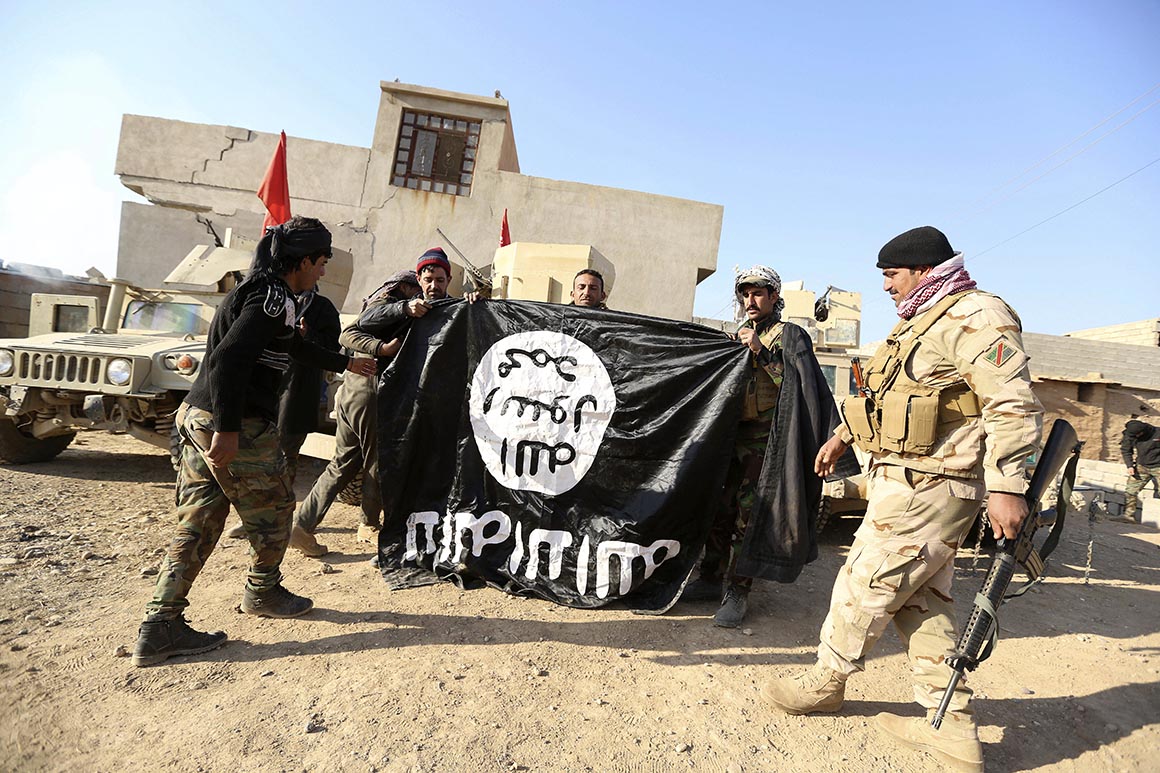
-
Mosque Attacks: ISIS-K has a track record of carrying out attacks, both within Afghanistan and beyond, targeting mosques among other locations.
-
Twin Bombings in Iran: Earlier this year, the group was confirmed to have orchestrated twin bombings in Iran, resulting in the deaths of nearly 100 people, according to intercepted communications by the U.S.
-
Suicide Bombing at the Russian Embassy: In September 2022, ISIS-K militants claimed responsibility for a deadly suicide bombing at the Russian embassy in Kabul.
-
Attack on Kabul's International Airport: In 2021, ISIS-K was responsible for an assault on Kabul's international airport, resulting in the deaths of 13 U.S. troops and numerous civilians during the chaotic U.S. evacuation from Afghanistan.
-
Threats Beyond Afghanistan: Recent warnings from the top U.S. general in the Middle East suggest that ISIS-K could pose a threat to U.S. and Western interests outside of Afghanistan, potentially striking with little to no advance notice, within a timeframe as short as six months.
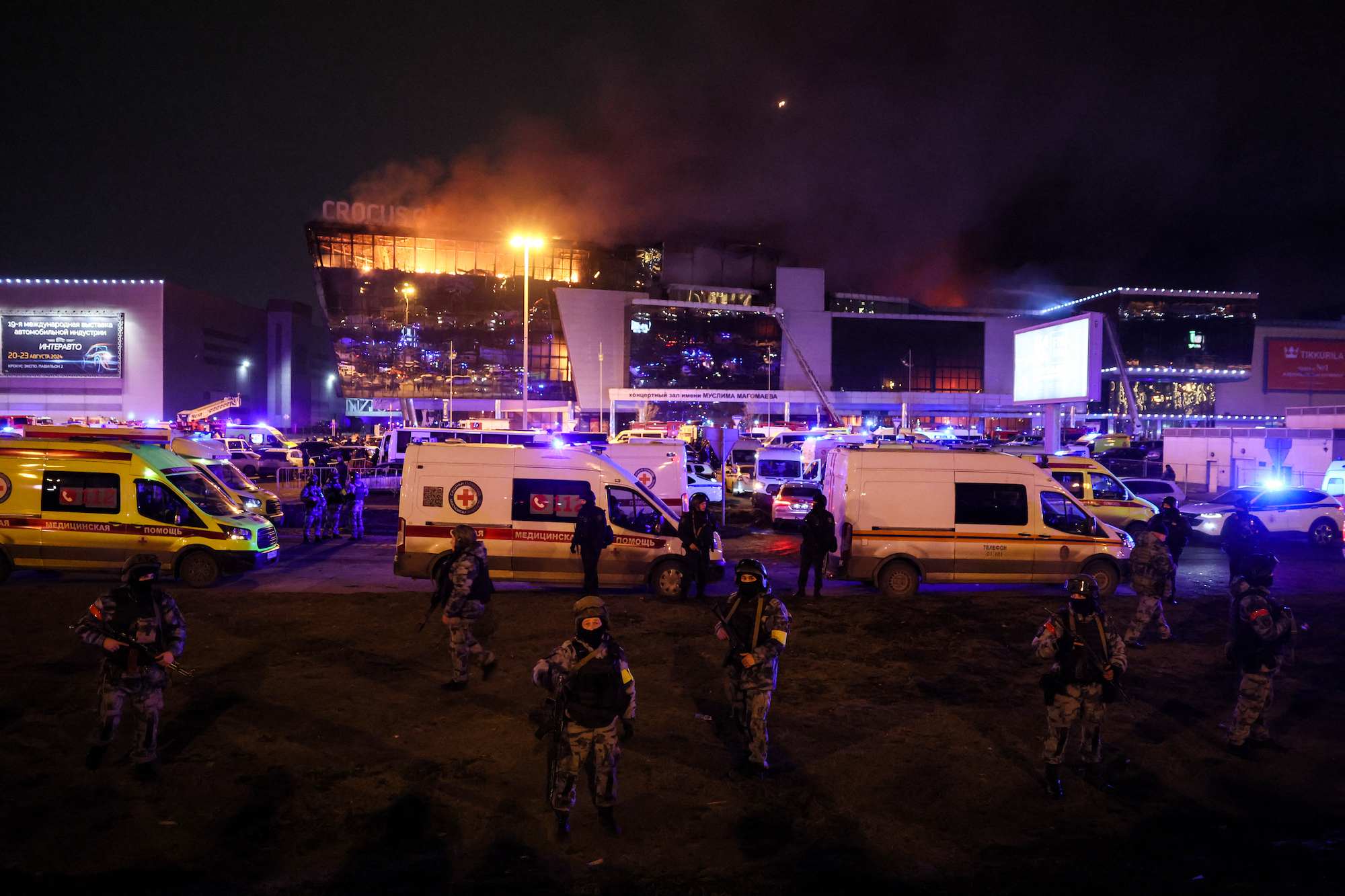
ISIL, also known as ISIS, has asserted responsibility for the assault on Moscow's Crocus City Hall, resulting in the deaths of at least 115 individuals and injuring 187 others.
Here are insights into the motives behind the attack by ISIL's Afghan branch, referred to as ISKP or ISIS-K:
-
ISKP, also known as ISIS-K, emerged in eastern Afghanistan towards the end of 2014, swiftly gaining notoriety for its extreme brutality.
-
The group has a track record of carrying out attacks both within and outside Afghanistan. This includes assaults such as those on Kabul's international airport in 2021, a suicide bombing targeting the Russian embassy in Kabul in September 2022, and twin bombings in Iran earlier in the same year, resulting in nearly 100 casualties.
-
Earlier this year, the top US military commander in the Middle East cautioned that ISIS-K could launch attacks against US and Western interests beyond Afghanistan with minimal warning.
-
While the recent attack by ISIS-K in Russia represents a significant escalation, the group has harbored animosity towards Russian President Putin, viewing Russia as complicit in actions that routinely oppress Muslims, as noted by Michael Kugelman of the Washington-based Wilson Center.
-
Kugelman also highlights the presence of numerous Central Asian fighters within the group, each with their own grievances against Moscow.
-
ISIS-K's targeting of nations beyond Afghanistan indicates its intent to regain prominence and attract global attention.
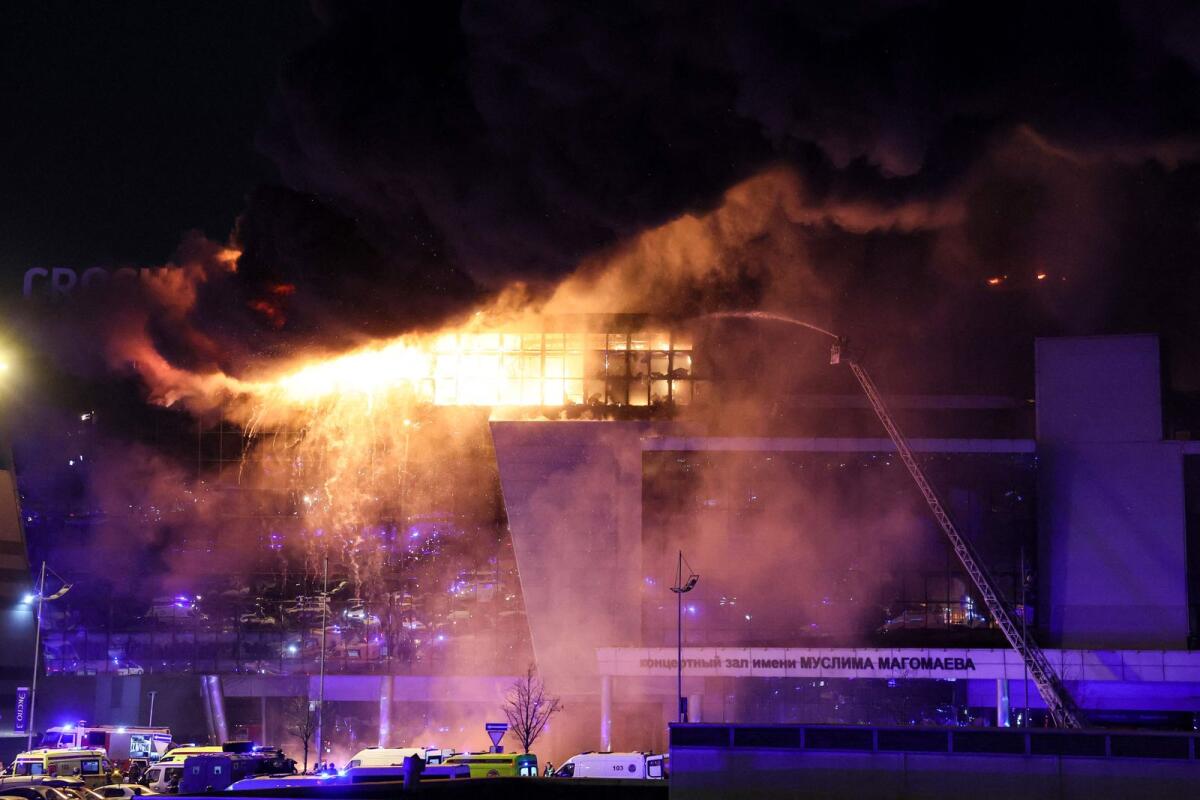
The recent attack on a concert in Moscow has sparked reactions from various international entities and leaders.
Here's a roundup of the latest statements:
-
UN Security Council: The Security Council members have vehemently denounced the terrorist attack on a concert hall in Krasnogorsk, Moscow Region, Russia, on March 22, 2024. They described the assault as "heinous and cowardly."
-
US White House Spokesman John Kirby: Kirby expressed deep dismay at the distressing images emerging from the scene, emphasizing solidarity with the victims of the tragic shooting attack.
-
Ukrainian Presidential Adviser Mykhailo Podolyak: Podolyak asserted Ukraine's non-involvement in the incident, reiterating the nation's ongoing conflict with the Russian regular army. He denied any association with terrorist tactics, expressing concerns that Russia might exploit the attack for propaganda purposes.
-
United Nations Secretary-General Antonio Guterres: Guterres strongly condemned the terrorist attack, extending heartfelt condolences to the affected families, the people, and the government of Russia. He also wished a swift recovery to the injured.
-
Chinese Leader Xi Jinping: Jinping conveyed condolences to President Putin, acknowledging the severity of the terrorist attack and its toll on casualties.
-
French President Emmanuel Macron: Macron condemned the attack, expressing solidarity with the victims, their families, and the Russian populace.
-
India’s PM Narendra Modi: Modi denounced the terrorist assault, offering condolences to the victims' families and expressing solidarity with Russia in their time of sorrow.
-
Saudi Arabia’s King Salman and Crown Prince Mohammed bin Salman: The Saudi leaders extended their condolences to President Putin in the wake of the tragic incident.
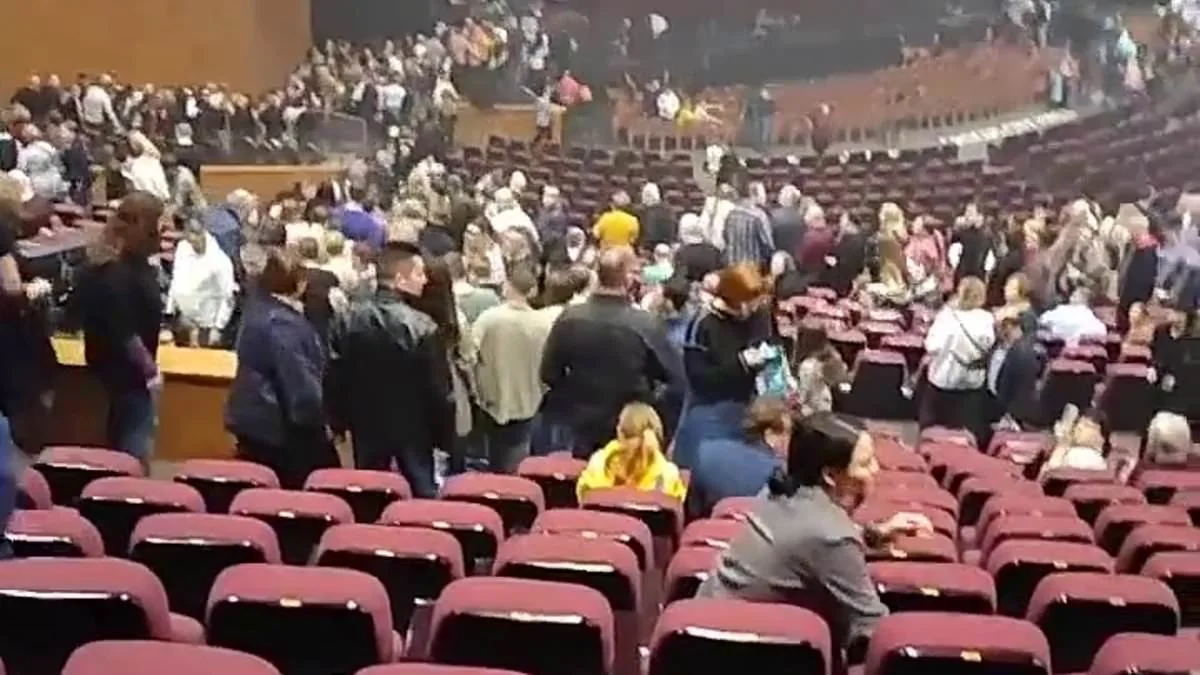
With inputs from CNN/AL JAZEERA
Image Source: Multiple agencies
© Copyright 2024. All Rights Reserved Powered by Vygr Media.

